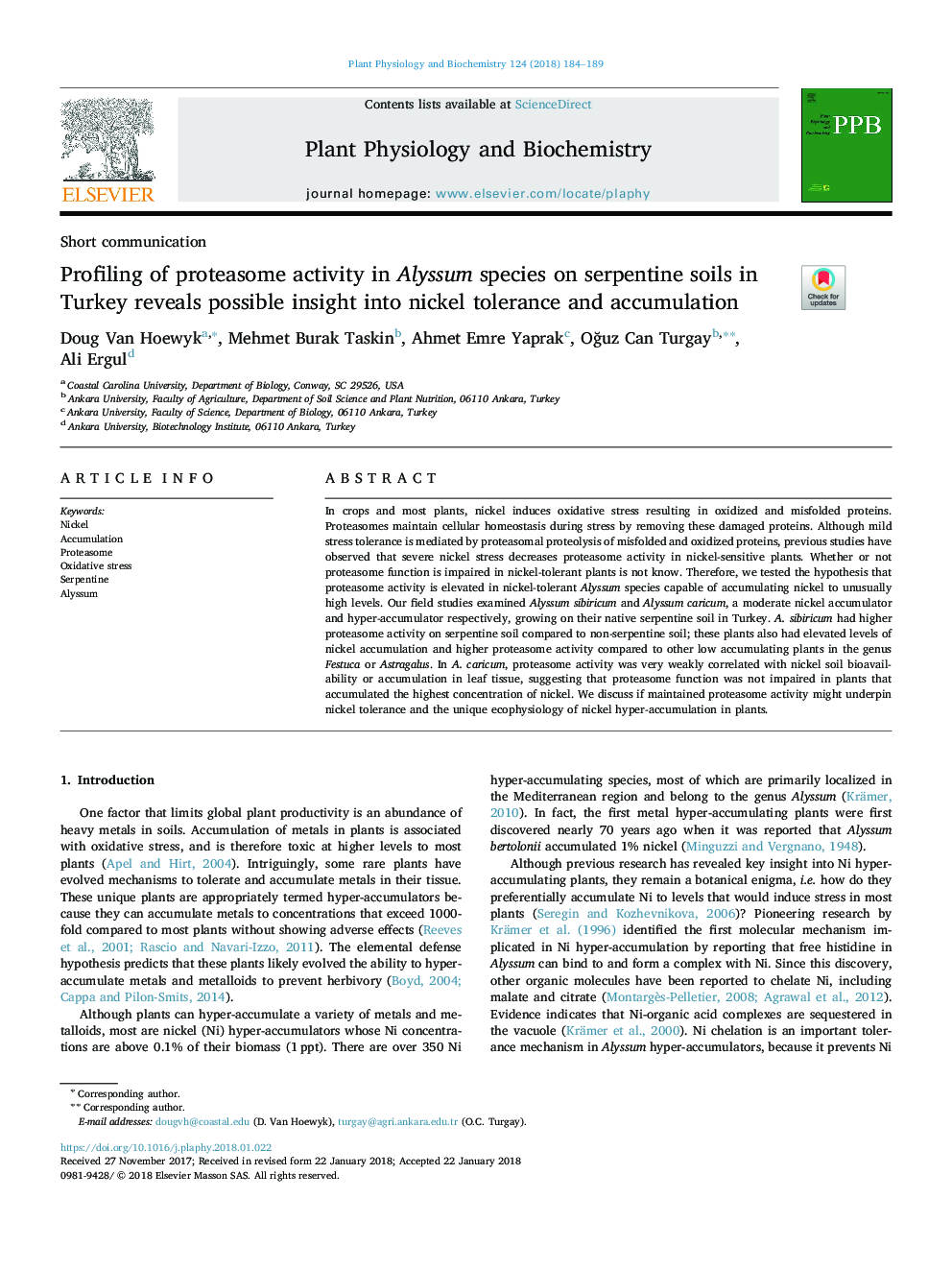| Article ID | Journal | Published Year | Pages | File Type |
|---|---|---|---|---|
| 8353371 | Plant Physiology and Biochemistry | 2018 | 6 Pages |
Abstract
In crops and most plants, nickel induces oxidative stress resulting in oxidized and misfolded proteins. Proteasomes maintain cellular homeostasis during stress by removing these damaged proteins. Although mild stress tolerance is mediated by proteasomal proteolysis of misfolded and oxidized proteins, previous studies have observed that severe nickel stress decreases proteasome activity in nickel-sensitive plants. Whether or not proteasome function is impaired in nickel-tolerant plants is not know. Therefore, we tested the hypothesis that proteasome activity is elevated in nickel-tolerant Alyssum species capable of accumulating nickel to unusually high levels. Our field studies examined Alyssum sibiricum and Alyssum caricum, a moderate nickel accumulator and hyper-accumulator respectively, growing on their native serpentine soil in Turkey. A. sibiricum had higher proteasome activity on serpentine soil compared to non-serpentine soil; these plants also had elevated levels of nickel accumulation and higher proteasome activity compared to other low accumulating plants in the genus Festuca or Astragalus. In A. caricum, proteasome activity was very weakly correlated with nickel soil bioavailability or accumulation in leaf tissue, suggesting that proteasome function was not impaired in plants that accumulated the highest concentration of nickel. We discuss if maintained proteasome activity might underpin nickel tolerance and the unique ecophysiology of nickel hyper-accumulation in plants.
Related Topics
Life Sciences
Agricultural and Biological Sciences
Plant Science
Authors
Doug Van Hoewyk, Mehmet Burak Taskin, Ahmet Emre Yaprak, OÄuz Can Turgay, Ali Ergul,
